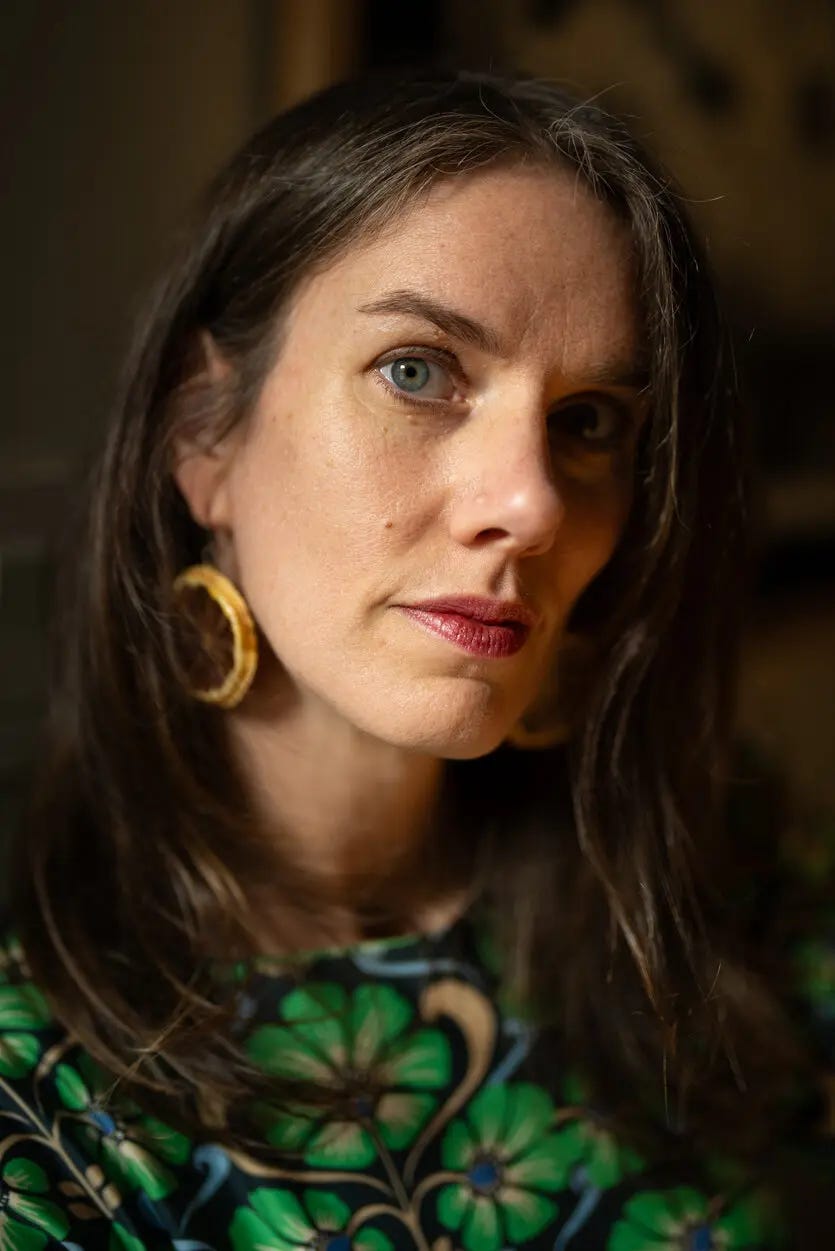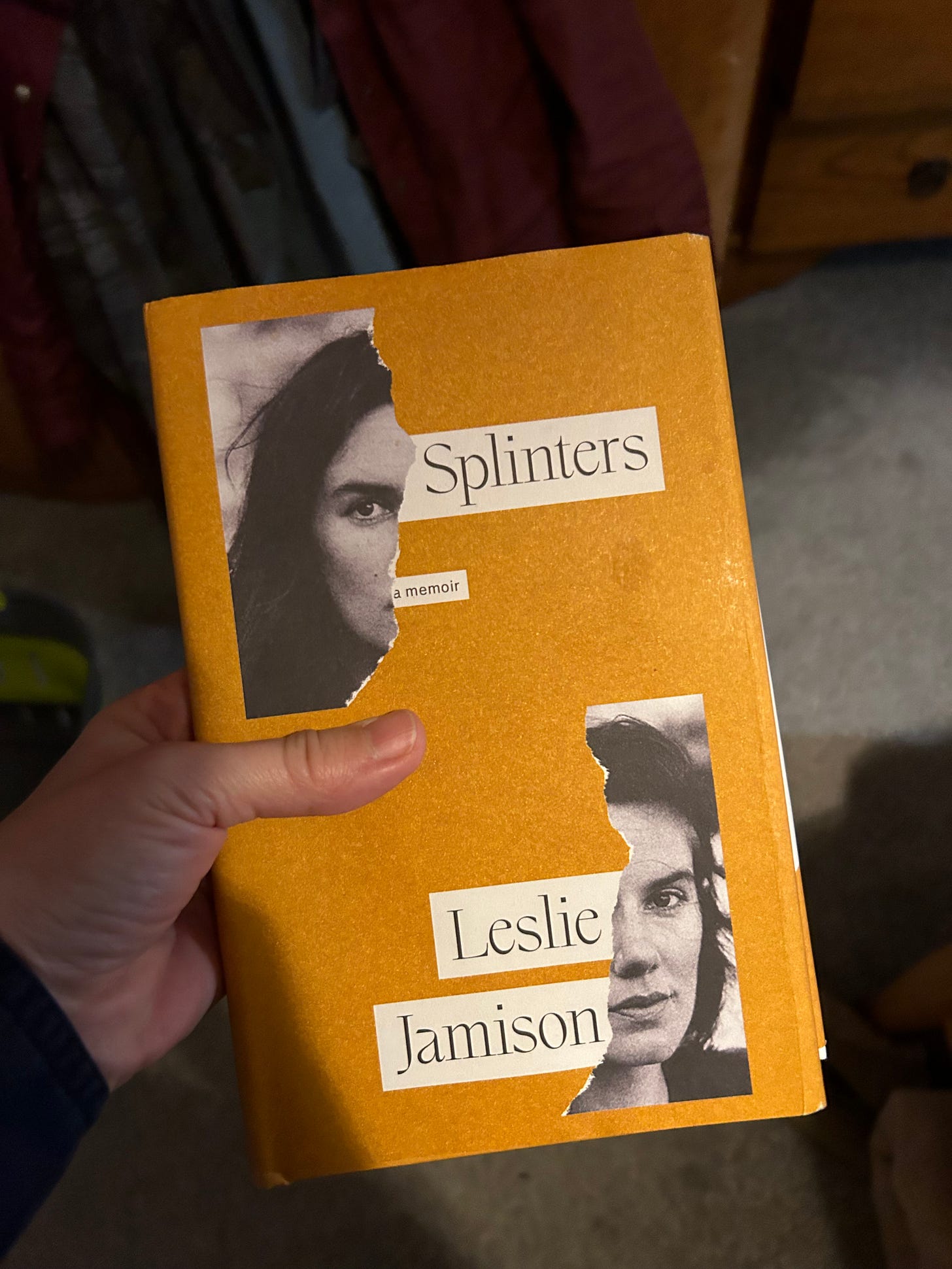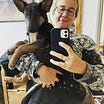Some thoughts on writing 'the self'
As Dr Lily Dunn prepares for the new Narrative Nonfiction cohort of students at Bath Spa University, she reflects on a tweet by a writer she admires, Leslie Jamison... on how best to write 'the self.
The summer is over, and September has almost come to an end, which means those of us who are lecturers at university, are gearing up to go back to teaching. Today I looked through my weekly planner for my role at Bath Spa University, and started to get my head around what I will be bringing to the new cohort of my narrative nonfiction class. It reminded me of a tweet I saw some years ago by an author I really admire, Leslie Jamison (author of the Empathy Exams and The Recovering, and most recently, her memoir, Splinters – if you haven’t read it, you must!), along with some very fine long form essays. It was her teaching summary for the upcoming semester, a module on ‘The Self’.
Many people retweeted it, with responses like mine, which was: Wish I was a fly on the wall. Wish I could join your class, and so on. Such a shame that she’s all the way in the US.
Jamison lists a number of authors that she brings to class, here are some of them: – Saint Augustine, Annie Ernaux, Audre Lord, Terese Marie Mailhot, Claudia Rankine, Chris Kraus, James Baldwin, James Agee, Vauhini Vara, Sei Shonagon, Cathy Park Hong, Ross Gay, Nathalie Leger, and Saidiya Hartman. If you are interested in memoir, you must read - but she also lists some statements, which I guess she will be standing by in her teaching. And I was struck by a few of them and wanted to unpick them here:
‘I feel the shame of self interest’ This is in relation to Jamison proclaiming that people often say, ‘I am just not that interested in myself’ and her response – but I am interested in myself, and I am interested in other people who are also interested in themselves, and writers who are interested in exploring themselves on the page.
Yes, I agree.
She signs off by saying, ‘I am interested in the idea that being interested in yourself deepens your capacity to be interested in other people.’
This is the statement that strikes me the hardest, as it brings me back to something I have taught my memoir students in the past which is a rebuke to the statement that we memoirists are solipsistic, self-obsessed monsters – yes, I’ve heard it a couple of times. What if writing memoir actually isn’t an act of narcissism but more an anti narcissism, a generosity, to lay yourself bare and open because others don’t have the guts, capacity, time to do so?
What if digging into the self in order to find the universal helps others open up, however initially painful? We lift the blanket; we dig in the mud; we see shades in the darkness. We bring it into the light. And in turn we grow in empathy for our fellow humans. Like archaeologists, we dig deep into the psyche in order to understand ourselves so we can empathise with the universals of pain, of grief, of love and of loss.
As memoirists, perhaps we should not be afraid to be accused of navel-gazing, we should be more afraid of the uncomfortable emotions that our exploration of self – and truth – brings up in those who read us, and the chain of events that follow. Did it cause a conversation to be had? Did it throw stones at years of stagnant silence? Did it shake the world awake? We must be prepared to be blamed for causing hurt, regardless of what that hurt leads to.
And what about writing about the ordinary life? Jamison specifies constructing a self who is ‘simultaneous, hungry and changing, restless and tender, built from scenes and fragments and breakfast preferences and half-smoked cigarettes and curt words papering-over unspoken vulnerabilities.’
Isn’t this one of the biggest challenges to the memoirist, to make the mundane interesting? Seeing the truth in the simple everyday occurrences and conversations, the nuance of you and me, over there on the settee. What is being said and what is hidden. This is what interests me the most.
And in my personal life I have learned to look for meaning in all that happens, both the joy and (especially) the pain, then to understand it through the prism of story. Believe me it helps. Imagine if we didn’t have that? If everything was meaningless, just a sequence of disappointment and struggle, how incredibly desperate and senseless.
I once told someone in defiance (I was hurt by something they had said) that writing is my religion, and however pretentious that sounds, I stand by it. The world would look a completely different place without it.
Now open for booking
Live Online - The Art of the Swerve, 7pm on September 16th, with Tania Hershman, only £10
Enchantment in Fiction starts online on September 24th, with Zoe Gilbert (only 1 place left!)
Writing Our Way Back, 3pm on September 28th, with Katie Watson
Short Story Bootcamp: Fix, Polish, Submit! starts online on October 9th, with Ruby Cowling
There are a few places left on
Writing Workshops. This is a monthly Zoom workshop for those of you with a work in progress who want peer to peer support. It starts in November and runs for eight months.







Yes!! In late 2018, I totally burnt out, my mum died, I had a hysterectomy, I had to give up my business, then covid happened and we decided to sell our house and live on a narrow boat. The last 6 years have been spent trying to make sense of why I fell apart so dramatically, but so many people have said 'I need to put the past behind me/ I'm getting older (67) so I need to just get on with my life blah blah blah '. Writing is so helpful in helping me to move forward and I'm learning not to pay attention to everyone else's opinion. We all learn from each other and I'm so grateful to everyone who is brave enough to share their stories.
I often feel that writing about myself will make me look self-obsessed or self-absorbed and solipsistic, so thank you for sharing this. I love Leslie Jamison, and her words are also so encouraging for those of us who want to delve deeper into the self.